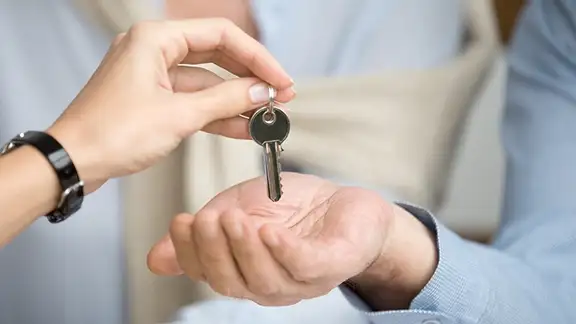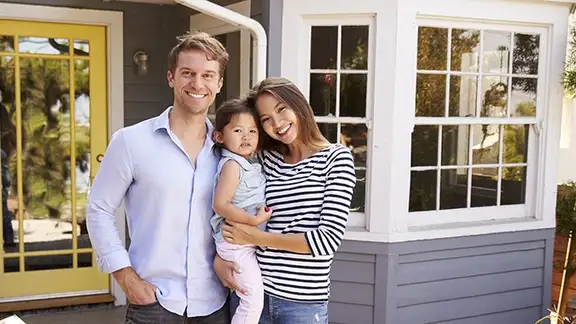Whether you’re buying your first or fifth home, you need to be aware of these tax implications.
28 juillet 2022

For most people, a home is the biggest purchase they’ll ever make in their lifetime – a purchase that might take a lifetime to pay off. There are programs, credits and deductions set up to help get people into their first home, or help people manage the home they have. Here is an overview of those credits available, and the things people need to think about when preparing to buy a home.
Before you buy your first home:
Setting up a Tax-Free Savings Account (TFSA) is a great way to get some investment dollars into your down payment. It’s recommended that people start putting money into registered savings accounts as soon as they start their first job. When you’re ready to withdraw, you can do so tax-free. In the meantime, the money can sit in your savings account and accumulate interest.
The government also introduced the Tax-Free First Home Savings Account (FHSA) for next year, which allows Canadians under 40 years old to save up to $40,000 towards their first home and withdraw it tax-free to put towards their first home purchase with no requirement to repay it, which is unlike the RRSP Home Buyers Plan (HBP). The HBP lets you withdraw up to $35,000 from your RRSP to buy or build a home, and gives you up to 15 years to repay the amounts withdrawn.
Home Buyers Amount.
For your first home, you can claim up to $10,000 for the purchase of a qualifying home, up this year from $5,000. So, now you’re wondering how to know if your home qualifies? First, this purchase has to be your first home, and you can’t have lived in a home that you or your spouse owned from the last 4 years. Most types of dwellings count, such as single-family houses, semi-detached houses, townhouses, mobile homes and condos. However, if the dwelling is part of a co-op it might depend on if you actually own it or if you only have a tenancy right in the unit. If it’s the former, it still counts, but if it’s the latter, it won’t count.
If you have a disability, you can claim this amount even if it’s not your first home. It must be a home that’s suited for and better for the person with the disability, and they must live in that home.
You might be able to claim that renovation.
If you're renovating your home due to disabilities, or mobility issues related to old age, some of these renovations can be claimed on taxes. Similarly, the government introduced a tax credit this year that will come into effect in 2023 to help those living in a multigenerational home.
The Home Accessibility Tax Credit is available to make a home more accessible and functional for a qualifying person with a disability. The credit provides 15% of up to $20,000 in renovations, meaning you’d be able to get a credit of up to $3,000.
For those who are living in a multigenerational home where perhaps the senior parents and adult children are sharing a dwelling, or a relative with a disability is moving in, sometimes those homes need renovations to make them livable for everyone. With this, people will be able to create an additional suite on their property, or retrofit their basement to be it’s own functioning apartment for the purpose of an immediate relative living there. This credit will give 15% of up to $50,000 on renovation expenses, so people can expect up to $7,500 back in tax credits. Credits are non-refundable, so it’s not money back in your pocket, but it could help cover other taxes owed, such as annual property taxes!
Don’t let your annual taxes surprise you.
When buying a home, your realtor can tell you the amount the previous owners paid in annual property taxes. It’s recommended that you set aside some funds with each paycheque to ensure that come tax time, you aren’t surprised with a tax bill of a few thousand dollars you forgot about. It’s a lot more palatable to set aside $125 a paycheque then to get hit with an unexpected $3,000 owed in April.
Did you buy a house to flip? Be prepared for higher taxes this year.
The housing market has been insane for the past two years, and in that time, many people took to buying property in order to flip houses. But the government has been cracking down on people who have erroneously claimed a flip house as a primary home while living somewhere else with a partner. So, to mitigate this problem, and to help control the vastly fluctuating housing market, the government will be implementing a new Anti-Flipping Tax in 2023. If you sell a home that you’ve owned for less than 12 months, the government will assume it was for the purposes of flipping and will require you to pay taxes on it as if it were business income. They will be excluded from capital gains inclusion or the principle residence exemption. There are exceptions to this, mostly around any life events that may necessitate someone to sell their house within 12 months of purchasing it, such as death or divorce.
Home buying is an exciting time, though sometimes it’s stressful to figure out all the financial implications. If you need help with filing your taxes, H&R Block Tax Experts are here to help, and you can choose from one of four convenient ways to file: File in an Office, Drop-off at an Office, Remote Tax Expert, or Do It Yourself Tax Software.



